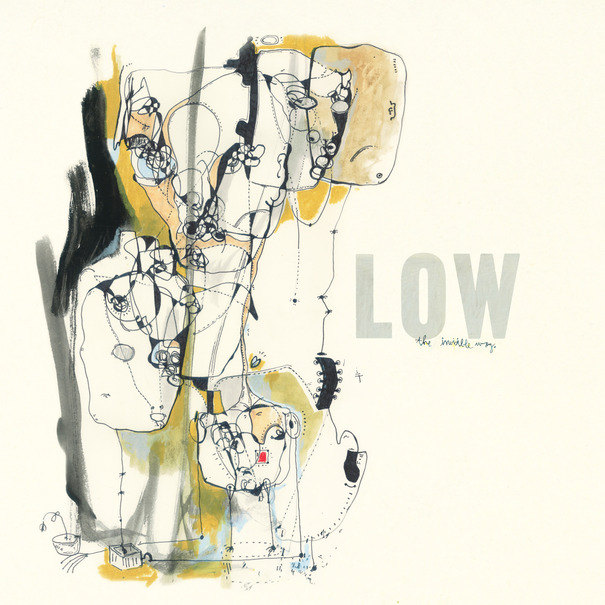 Low's newest record represents, as many past releases do for the band, an intentional and successful return to past ideas. As a listener more entrenched in their early material, this record was a welcome and familiar return to a form I recognized. Alan Sparhawk and Mimi Parker (along with Steve Garrington this time) have decided to craft The Invisible Way with a serious emphasis on empty space and atmosphere by way of Jeff Tweedy, handling production duties, and elevate the subtle country influences of much of their work to the foreground. This is a gorgeous, glacial record that tempts tearful choruses at each slow turn.
Low's newest record represents, as many past releases do for the band, an intentional and successful return to past ideas. As a listener more entrenched in their early material, this record was a welcome and familiar return to a form I recognized. Alan Sparhawk and Mimi Parker (along with Steve Garrington this time) have decided to craft The Invisible Way with a serious emphasis on empty space and atmosphere by way of Jeff Tweedy, handling production duties, and elevate the subtle country influences of much of their work to the foreground. This is a gorgeous, glacial record that tempts tearful choruses at each slow turn.
"Plastic Cup" is an excellent beginning to the album, but it is probably as fitting an opener as any other song on The Invisible Way. Low's music is all about unpacking emotions and exploring simple moments over simple structures, and their singular focus does not lend itself to a complete contour, as strange as that seems. The few exceptions lay in their transcendent moments: "So Blue" is a masterful, escalating elegy to the loss of youth and innocence, so abundant with energy it seems to escape its restricted instrumental palette, and the only fitting refrain to it is the slow country-tinged comedown of "Holy Ghost." As an album closer, "To Our Knees" does seem specifically designed to taper off with uncertainty and sadness, but so does a majority of the other material.
The musicglides between poignant sentiments indiscriminately. Parker and Sparhawk work best in slow bars, their breath held, taking the stripped down ethos of rock music and applying it to dreamy baroque pop. Tweedy's work on production duties does due credit to their songwriting, elevating that baroque aspect while also giving it an Americana tinge. Low is not cherry picking country tropes, though; Jeff's work goes to show a side of their music which was always present but never predominant until now, the ancient blues aesthetic that colors much of their vocal melodies without becoming too overplayed to feel kitsch.
Each song on The Invisible Way is like an exact idea captured in amber, so I do not really consider the context of where they are sequenced to be that important. I am led along by their intertwined melodies, and captured by the utterly palpable anguish and pain in many of them, each slow verse another chance for their affecting lyricism to shine through. On such simple arrangements, they sell desolation more effectively than ever, in whatever form it fits. It so happens that much of it relies on the piano, the stand out element of the record, which carries much of the album's strongest material. I find myself appreciating the softer chords between choruses, little human moments of empathy before the storm. There are weaker songs, sure—both Sparhawk-led songs "Clarence White" and "Mother" on this record seem a little too faltering and histrionic—but they never damage the larger image or the flow of the record. Mimi's contributions, meanwhile, are probably the best in a while from her, holding most of the vocal duties and dominating the album's most powerful points.
Low plays on familiar sentiments and does it slowly, so that the times they resonate with the listeners, they make that resonance last longer and feel more impactful. For me, this is such contexual music; the time I hear it and the way I feel when I listen to it will forever affect my perception of it. In that way, the simplicity of the music leaves so much space for interpretation. From the cryptic sorrow of the lyrics to the actual instruments used to Tweedy's keen deconstruction of their sound, Low leaves the biggest spaces in their songs as places to store your own reservations and emotions, to impart your own feelings onto their canvas. This happens again and again, beautifully and delicately.
samples:
 
Read More

